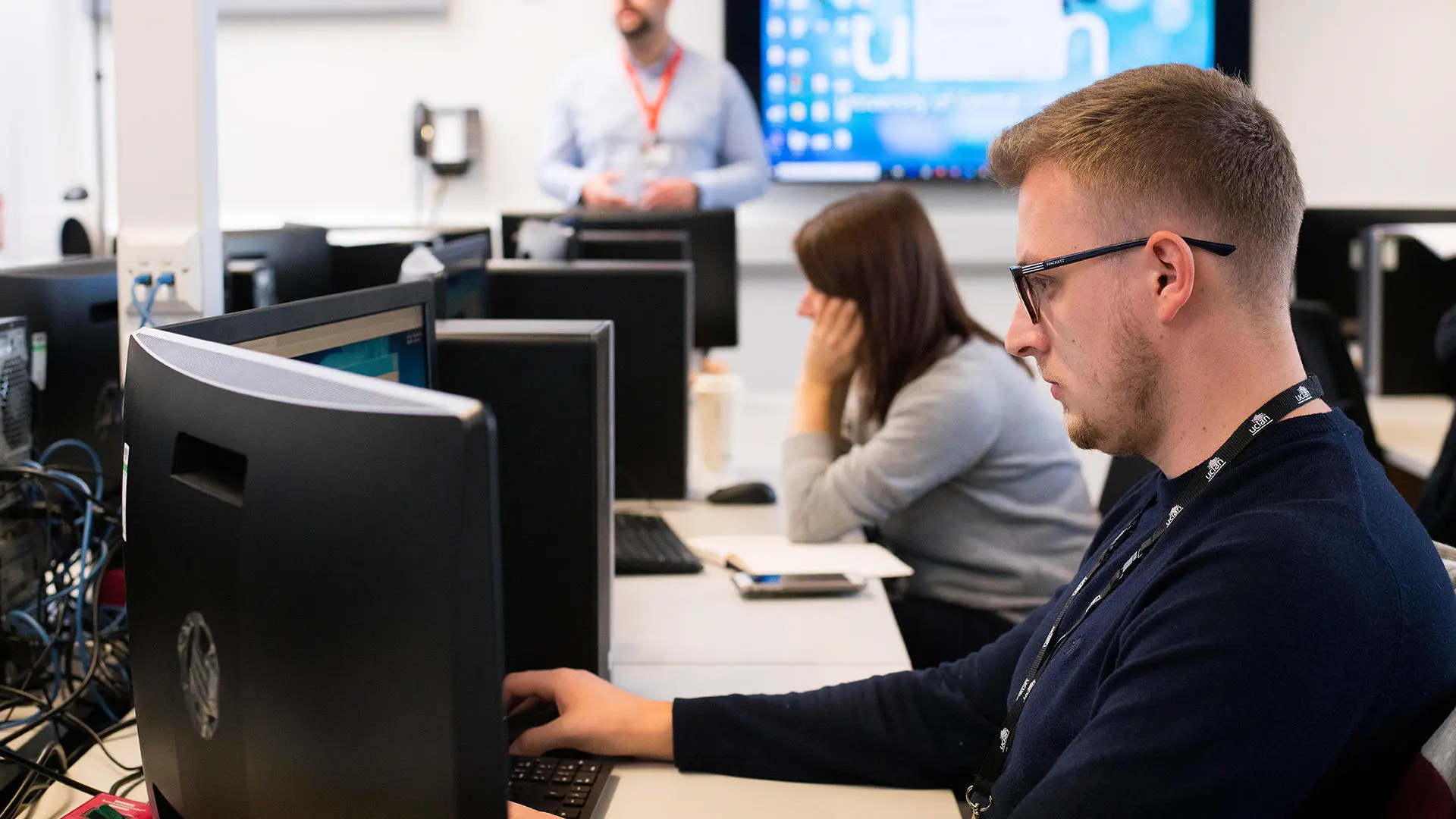BSc (Hons) Cyber Security student, Alex Reed, joined the University of Central Lancashire (UCLan) as a complete programming novice, however, by the end of his fourth week on the course, he and his team of fellow course mates had successfully developed a mobile phone application named 'Professor Pursuit'.
In the game, 'Dr. X' moves around the virtual map whilst trying to evade capture from the other three 'student' players. The location of 'Dr. X' and the 'student' players are hidden from each other, so everyone must think strategically about their moves to win the game.
This task is part of the Computing Challenge that all computing students take part in during their introductory weeks, and Alex described his experience as "intense but a good way to be introduced to the course, tutors and peers". His team received valuable project feedback from their tutors, and they had the opportunity to discover the other projects that the rest of the cohort had created.
"Don't worry about making friends or not getting to know your tutors. The Computing Challenge sorts that out. You get to meet lots of new people and are fully supported to create something amazing. An excellent welcome to the course"
— Alex Reed, BSc (Hons) Cyber Security student

Having already lived in Preston for most of his life, Alex was aware of the outstanding reputation the University has for computing, and such, decided to take advantage of the opportunity that was right on his doorstep. Before officially accepting his offer to study, he spoke to one of the computing tutors for advice on which pathway to take. Alex was interested in ‘ethical hacking’ and quickly discovered what courses and careers it links to, alongside the option to change to another computing-related course at the end of year one, if another area peaks his interest. All UCLan computing students follow a common first year, giving them an overview of the different areas: games development, software engineering, network technology and cyber security.
"If you've never done any programming before, they'll explain it all and make it clear. Even though they told me on the open day that you don't necessarily need any prior programming knowledge beforehand, I was worried that they would still assume that I knew the basics. Luckily, they didn't assume anything. Extra help is available for those who need it, and the tutors go through everything methodically"
— Alex Reed, BSc (Hons) Cyber Security student
If you’re interested in studying cyber attacks, national cyber security or system networks on the BSc Cyber Security course, or would like to find out more about studying computing at UCLan, visit our computing subject page or contact us on +44(0) 1772 893400.

